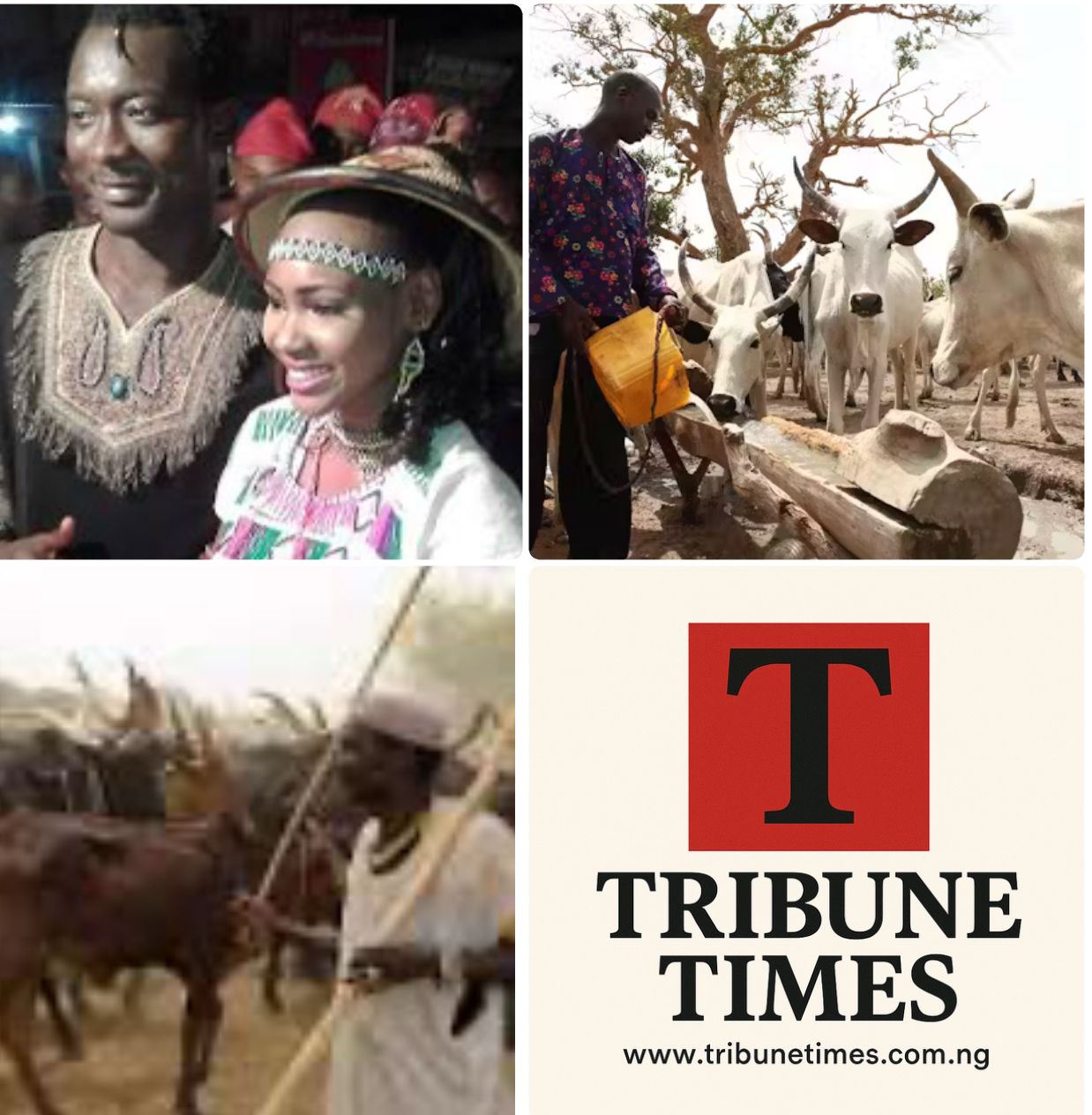Allegations of Fulani Political Domination in Northern Nigeria A Factual Clarification
By Adesoji Olalekan, Tribune Times Senior Correspondent
A recent message circulating on social media presents a troubling narrative suggesting that the Fulani ethnic group has politically marginalized the Hausa people and other ethnicities in Northern Nigeria. While the concerns raised merit attention in the interest of justice and equity, it is crucial that our discourse is grounded in facts, context, and a commitment to national unity not conspiracy or ethnic profiling.
The assertion that the political landscape in Northern Nigeria is dominated by the Fulani at the expense of other ethnic groups is both misleading and dangerous. This narrative risks exacerbating ethnic tensions, fostering an environment of suspicion, and inciting conflict among communities that have coexisted for generations. Ethnic profiling and baseless accusations can create deep-seated divisions which can lead to civil unrest and violence.
The politicization of ethnicity in Northern Nigeria is not a new phenomenon. Historically, strife fueled by ethnic allegiance has permeated various aspects of Nigerian life. In the current context, the idea that the Fulani are responsible for purported political dominance also implies that they are behind various socio-political challenges facing the region. This view distracts from a deeper examination of the systemic issues at play, including leadership failures, corruption, insecurity, and inadequate service delivery. The real challenges confronting Northern Nigeria can only be effectively tackled through collaborative action and mutual understanding rather than division.
In the diverse belt of Northern Nigeria, which comprises 19 states and various ethnic communities, the Fulani and Hausa have a long-standing relationship characterized by cultural integration and historical intermarriage. Over the centuries, these communities have developed joint cultural identities, often referred to as “Hausa-Fulani.” The portrayal of this historical relationship as a dichotomy oversimplifies a complex reality and undermines the shared heritage that binds these groups together.
A detailed examination of the political landscape reveals that Northern governors are not all Fulani. For instance, states like Kaduna and Kano are led by Hausa governors, while significant leadership is also provided by non-Fulani ethnicities, including the Kanuri in Borno and Yobe, and the Tiv and Jukun in Benue and Taraba. This nuanced understanding is vital; it dispels the notion of a monolithic Fulani political agenda and illustrates the rich tapestry of Northern Nigerian governance.
To transform the narrative surrounding ethnicity and governance in Northern Nigeria, we must collectively reject harmful stereotypes and promote a message of unity. One way forward is to shift focus from divisive ethnic identities to common struggles that all communities face, such as insecurity, poverty, and underdevelopment. By emphasizing shared objectives, we can foster collaboration among various ethnic groups and strengthen the fabric of our nation.
Addressing systemic issues within governance corruption, lack of representation, social and economic inequality should take precedence over divisive narratives that frame political contests as ethnic battles. Policy solutions must extend beyond superficial considerations of ethnicity and address fundamental drivers of poverty, insecurity, and disenfranchisement.
Through proactive engagement and unified action, we can pursue a vision for Nigeria that transcends ethnic divides. The focus should be on creating an inclusive political environment where every ethnic group feels represented and valued. Initiatives should prioritize:
1. Improved Education: For all ethnic groups to cultivate informed citizens capable of participating in governance.
2. Inclusive Governance: That reflects Nigeria’s diversity and ensures equitable representation.
3. Security Reform: Essential for protecting vulnerable communities against violence and injustice.
4. Truthful Historical Education: Aimed at fostering understanding and nurturing a culture of respect amongst various groups.
We must turn away from divisive narratives and instead strive for a Nigeria where no ethnic group feels marginalized. True progress lies in equity, justice, peace, and accountability, not in planting seeds of suspicion and animosity among communities. May we aspire to foster a unity that celebrates our differences while recognizing our shared humanity.
By Adesoji Olalekan, Tribune Times Senior Correspondent
Join the News Revolution on WhatsApp!
Get exclusive stories, breaking headlines, and behind-the-scenes scoops from Tribune Times — delivered straight to your WhatsApp!
Click to join: https://whatsapp.com/channel/0029VabGvEy5a23zIzaJvp1J
Truth that matters. News you can trust.
#TribuneTimes #TruthOnWhatsApp #NigeriaNewsNow





